第129章
Of the manner in which obeisance is done to the King,&c.
The manner of the salaam which the nobles make to the King every day is this:--In the morning the nobles go to the palace at ten or eleven o'clock,at which hour the King comes out from within where his wives are,and after he has taken his seat they open to the nobles,and each one comes by himself and bows his head and raises his hands.This is what they call the "salaam"(SALEMA).With the king are about ten or twelve men who have the duty,on the entrance of each captain,of saying to the King:"See,your Highness,your captain so-and-so,who makes salaam to you."The Kings of Bisnaga have always liked,for show,to have many horses in their stables,and they always had eight or nine hundred horses and four or five hundred elephants,on account of which,and on account of the people that looked after them,they were put to great expense;and this King that now is (Achyuta Raya)has in his stable seven hundred and odd horses and four hundred elephants.He spends on account of them and for their attendants,to whom he gives food,two thousand gold PARDAOS per day.And of horsemen whom the King pays he has six thousand,and all of them are on the stables establishment (?)(COMEM DA ESTREBARYA);and those who serve them are paid each year,some a thousand PARDAOS,some five hundred,some three hundred,and those who have less pay receive not less than a hundred.Of these six thousand,two hundred are obliged to ride with the King.
The kings of this country are able to assemble as many soldiers as they want,as they have them there in their kingdom and have much wealth wherewith to pay them.This King Chitarao has foot-soldiers paid by his nobles,and they are obliged to maintain six[598]LAKHSof soldiers,that is six hundred thousand men,and twenty-four thousand horse,which the same nobles are obliged to have.These nobles are like renters who hold all the land from the King,and besides keeping all these people they have to pay their cost;they also pay to him every year sixty LAKHS of rents as royal dues.The lands,they say,yield a hundred and twenty LAKHS of which they must pay sixty to the King,and the rest they retain for the pay of the soldiers and the expenses of the elephants which they are obliged to maintain.For this reason the common people suffer much hardship,those who hold the lands being so tyrannical.Of these sixty LAKHSthat the king has of revenue every year he does not enjoy a larger sum than twenty-five LAKHS,for the rest is spent on his horses,and elephants,and foot-soldiers,and cavalry,whose cost he defrays.
During his feasts and the almsgiving to his temples all these captains,who are thus like renters,must always attend the court,and of those whom this King always has about him and by whom he is accompanied in his court there are more than two hundred.These are obliged always to be present with the King,and must always maintain the full number of soldiers according to their obligations,for if he finds that they have a less number they are severely punished and their estates confiscated.These nobles are never suffered to settle themselves in cities or towns because they would there be beyond reach of his hand;they only go thither sometimes.But a concession is granted to the kings that are subject to him,namely they do not go to court unless they are summoned,and from their own cities they send to him their rents or tributes;yet the King of Bengapor is obliged to be always in camp,and he goes to court twice in the year.
The kings who are subject are these,besides this King of Bengapor,namely the King of Gasopa and the King of Bacanor and the King of Calecu and he of Batecala,[599]and these when they come to the Court of Bisnaga are not held in higher esteem than any other captains,either by the King or by the other nobles.
The captains and lords of this kingdom of Bisnaga,as well those who are at Court as those who are away from it,have each one his secretary who goes to the palace in order to write to him and let him know what the King is doing;and they manage so that nothing takes place of which they do not soon know,and day and night they are always in the palace.And the King also,when he leaves the palace,takes with him on his own account secretaries,who write what the King says,and the favours he bestows,and with whom he spoke,and upon what subject,and what his determination was;and to these men is given a credit equal to that of the Evangelists,because they say that whenever the King speaks there must be something worthy to be recorded,and also that such a record is necessary for their remembrance.Thus no written orders are ever issued,nor any charters granted,for the favours he bestows or the commands he gives;but when he confers a favour on any one it remains written in the registers of these secretaries.The King however gives to the recipient of the favour a seal impressed in wax from one of his rings,which his minister keeps,and these seals serve for letters patent.
These Kings of Bisnaga eat all sorts of things,but not the flesh of oxen or cows,which they never kill in all the country of the heathen because they worship them.They eat mutton,pork,venison,partridges,hares,doves,quail,and all kinds of birds;even sparrows,and rats,and cats,and lizards,all of which are sold in the market of the city of Bisnaga.